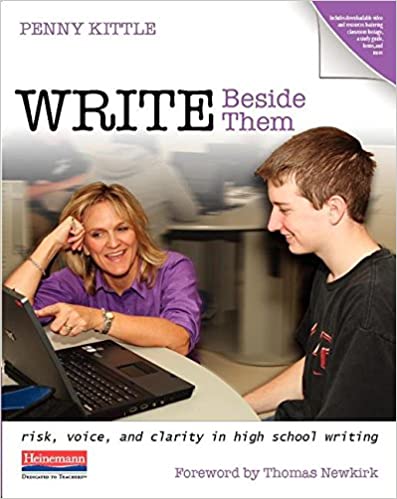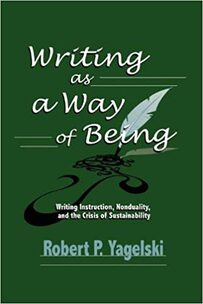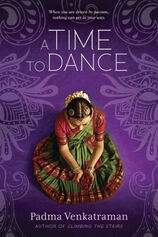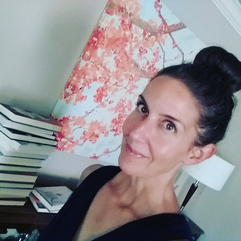It is great opportunity for the blog to have her serve as a guest contributor for Dr. Bickmore's YA Wednesday. She has plenty of work to do running her own blog--Ethical ELA. After reading this post, be sure to checkout all of her projects at Ethical ELA.
Writing With YA Authors and Their Characters By Sarah J. Donovan
I don’t think I understood poetry in quite this way until I found verse novels and began reading every one I could get my eyes on. Verse novels are not the same as a poem in the sense that a poem within a verse novel is at once alone and part of a story. The form itself acknowledges and appreciates partial ways of knowing, voices beyond the pages, remains of the past, and understandings still evolving.
These days, I see teachers as living within various points of transformation. We navigate the intersecting stories of our school and personal lives. And this past year, those likely overlapped in a single physical space where our dining room table became our classroom. Where the bulletin boards we loved to adorn with student writing became a Bitmoji Canvas classroom. Where we dressed up for prom and graduation supervision with a party up top and sweatpants and slippers on the bottom. Where beloved pets made guest appearances and our precious little ones joined class for a snuggle or homework help. And where our families quarantined in the basement, healed in hospital beds, or perished while waiting for a vaccine. There are poems in these spaces and others —spaces where we allowed our hearts and minds to escape, to heal, to imagine beyond our realities.
In this past year, I found that in writing autobiographical poetry with the support of verse novelists that I could revisit and heal wounds of the past and find joy in the everyday, often overlooked moments of my life.
While I am an advocate for reading verse novels, my goal in writing this piece at this time is to encourage educators to uncover what verse novelists can offer you as a writer, as a way of nurturing your writing life.
Trying to Write
| I’d like to invite educators to do two things during this April’s National Poetry Month celebration (and then continue in other months): write a poem alongside a YA verse novelist; and share that process with your students so that they can do the same. Penny Kittle, in Write Beside Them (2008), writes that teachers need not be “good” writers. It is enough to be someone “trying to write” (p. 109). What we can offer our students is process—“to know, experience, and model a process”—and what happens inside the process of writing. Indeed, as n English teacher educator who reads and teaches YAL, I must not forget that my preservice and inservice teachers also teach writers. In classrooms and syllabi filled with YAL of mirrors, windows, sliding glass doors (Bishop), and curtains (Reese), we may be missing one important frame that comes from the act of writing: writing as a way of being. (What is an apt metaphor for that frame? Help, please.) |
| In Writing as a Way of Being, Bob Yagelski writes: “I am as I am writing. The writing does not create me, but in the act of writing I am, by writing I reaffirm and proclaim my being in the here and now. The act of writing, in this sense, is a way of being;it is an ontological act” (p. 104). Carving time and space to write as an educator “reaffirms” our being, which can feel fragmented much of the time as we balance our school and personal lives, our research and teaching, all the reasons we came to this vocation (Hansen). And carving time in our classrooms and syllabi for “acts of writing,” can illuminate a dimension in YAL sometimes overlooked—that when we read YAL, we are witnessing the author’s ontological act, their way of being, and when we write, we are. When I think of reading and writing in this way, I feel such proximity to the author and characters that I also feel invited to write alongside them, to “proclaim my being.” |
Writing with Padma
| One text in our YA literature course and a favorite in my junior high classes is Padma Venkatraman’s verse novel A Time to Dance (2015). Venkatraman lyrically explores how a dancer holds onto her dreams after an accident requires a below-knee amputation. This verse novel is about dance, but it is also about love and family. “Sacred Water” is one poem from the novel that rests in between Veda’s dancing and another significant loss, the death of her grandmother. |
in A Time to Dance p. 223
Paati’s tortured breathing wakes me.
A cool predawn breeze shivers in through out window
but sweat lathers Paati’s forehead.
She mumbles something,
her words slurred, her eyes unfocused.
“Pat! Ma! Come quickly!”
I grab my crutches, then, realizing I need to use my hands,
I get my leg on instead
and hurry to fetch the small sealed pot
filled with water from the sacred Ganga river.
A copper pot that’s sat in a corner of our household altar
for as long as I can remember.
Waiting for a time of death.
I know Paati will want a drink of this water
from the holiest of rivers.
She believes it will help wash away her sins.
Though I don’t believe she sinned in this life,
I break open the seal and
dash back to our bedroom,
Ganga water sloshing.
Paati’s drawn cheeks
crease into a faint smile.
For a moment her eyes clear.
Her lips part.
I splash some water into her mouth.
She swallows.
My arms tremble.
I pour an unsteady stream on her tongue.
She lifts a hand
as if to touch my cheek
but her hands fall back
on her chest.
Her lips close.
The last of the water
spills on her chin and dribbles
down her neck.
Ma leans forward.
Shuts Paati’s eyelids
Slides her arms around Pa.
Pa covers his face with his hands.
Reading this scene stirred in me a flash from the day my father died that had been dormant for years the moments just before I learned of his death.
The white space on the right of the poem was, for me, an invitation to at once sit alongside Veda, to hold space, and remember my own loss. The page welcomed me to tell my story in the bits that I wanted to remember, could remember. Of course, I could have turned the page if I wasn’t ready; it was the open space at the end of the page that trusted me to decide. Authors do these things for their readers. (Thank you, Padma.) So instead of turning the page, I opened my notebook and wrote. (Actually, I write in Google docs now because my typing fingers keep up better than my cursive fingers.)
My poem (below) does not look or sound like Veda’s/Venkatraman’s. I did not mimic her way of being as I sometimes do to begin writing, but I did try to re-witness the day I learned of my father’s passing. I stepped into my nine-year-younger eyes and moved through the scene looking for artifacts, noticing gestures, wondering thoughts. The line breaks gave me permission to shift abruptly and not spend too much time in one moment. I was as I composed.
An Invitation to Write
In the spirit of reciprocity, I offer you and Padma and Veda, my poem below. I share the very real space and time that I navigated my being as a teacher and daughter. While you cannot witness the act of my writing this poem, let me assure you that I was in the process. That I was there seeing my younger self as a classroom teacher trying to do and be a teacher, a student, a sister, a daughter.
My father’s death was a moment of transformation for me in 2013 that stopped me in my teacher tracks -- a phone call right after bus duty. And it was another point of transformation in 2021 when I reread A Time to Dance for our YA lit class and was ready to remember.
There is no need to share your poetry as I do below (but I would be honored to read it); it is enough to write it or try writing.
For this year’s National Poetry Month (and all year long), I invite you to write with young adult verse novels for yourself, and then invite your students to do the same. Share with them your trying to write, your process. Allow them to witness your act of writing if not your writing—if you are ready. Use classroom space—physical or virtual—as a way to proclaim our being in the here and now.
- Saadia Faruqi & Laura Shovan’s A Place at the Table invites a food memory.
- Aida Salazar’s The Moon Within invites reflection on celestial ways of being.
- Thanhha Lai’s Inside Out and Back Again invites the symbolism in a cycle of life.
- Kwame Alexander’s Crush: Love Poems for Teenagers creates an accessible form with very short lines that begins with “In My Closet, On the Top Shelf, is a…”
- Also by Kwame Alexander, The Write Thing invites us to think about parents in “Ten Reasons Fathers Cry at Night”.
- Kip Wilson’s White Rose asks us create something beautiful out of something not-so.
Sarah’s Poem
“After bus duty” by Sarah J. Donovan
After bus duty, I race back to H103
to grab my keys and, oh, print my pages
for class. I know, I know, the school copier
is not for personal use, but what’s not
personal about spending nights and weekends
on becoming, well, just becoming? Still.
I feel guilty and print 2X2, front & back,
shaking the ink cartridge in between chapters.
After the page print, I check my email
one more time: a message from my prof
asking me to pick up his son on the way
to class. It’s on the way, isn’t it? A big favor.
No car. I know, I know, strange request, but
sometimes professors become big brothers
after so many years, and it is on the way
from the burbs to the city, and class is at
the prof’s house, à la Jane Addams --
soup & bread, with sides of activism & dissertating.
After the email, I quickstep to the loo--
though I don’t call it that—it’s a faculty
bathroom with a handmade gender neutral
sign and a lock. Privacy to do your business or
cry until someone knocks and I have to
say “occupied.” I pee—finally—brush my hair, wipe
smudged mascara from my cheek— it
really should be closer to my eyes—notice
the dried-pus pimple I picked eight hours
prior on my chin. Attempt to cover it with
decade old concealer I keep in my
bag to offer students who want to cover a
hickey though many like the badge. Attempt to
look fresh with Burt Bees lip gloss– sticky. Attempt to
smell fresh with travel-sized deodorant from my
caboodle of pencils, highlighters, sticky notes
and now wrinkling chapters because
I neglected to put the pages in a folder.
After the loo — liking that word now--
I turn on my phone.
.
.
.
.
.
Voicemails. S, from my sisters
who know texting is my preferred
mode, so I know something has
happened, and I know the something
is serious when the oldest’s voice,
which I realize I’ve never heard
in voicemail, tells me that he is
dead.
.
.
.
.
.
After the voicemail, I drive to
a place to pick up a son
to bring to his father
to sit at a table with soup & bread
to read my crumpled pages
to Janes knowing in a few
hours, there will be
After.
| Sarah J. Donovan is an assistant professor of secondary English education in the School of Teaching, Learning and Educational Sciences at Oklahoma State University, Stillwater. Her scholarship focuses on anti-bias reading practices of young adult literature in the English language arts classroom and the role of writing poetry in teacher professional development. A co-director of the Summit on the Research and Teaching of Young Adult Literature and founder of Ethical ELA. Sarah can be reached on social media @sarahjdonovan9 and [email protected]. |





 RSS Feed
RSS Feed